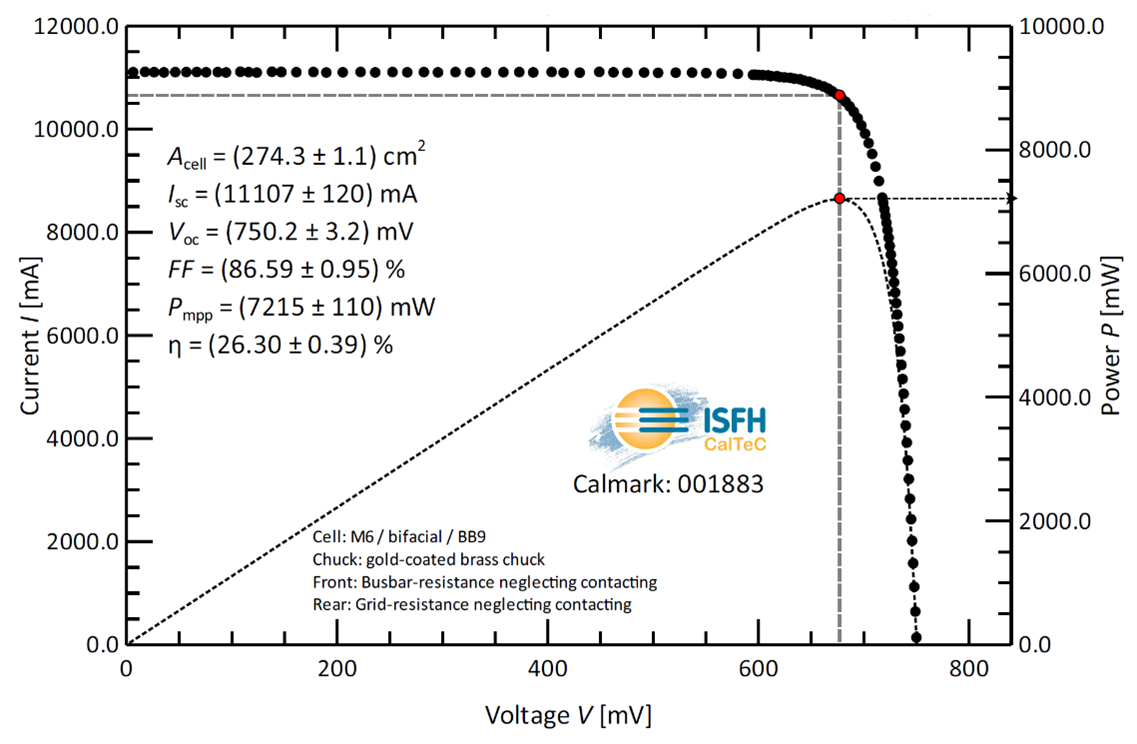Chinese PV module maker Longi claims it was able to improve the efficiency of its heterojunction solar cell based on an M6 wafer from 25.82 to 26.30% in just one week.
The result, which the company says also represents the world’s highest efficiency for a front-back contact (FBC) solar cell, was confirmed, once again, by Germany's Institute for Solar Energy Research Hamelin (ISFH).
“The fill factor (FF) of the certified cells breached the threshold of 86%, reaching 86.59% and achieving the world’s highest level for silicon cells,” the manufacturer said in a statement. “A new process developed by LONGi’s R&D team can effectively reduce the contact resistance of the interface, so as to improve the FF and increase a cell’s current density.”
Popular content
The cell also showed a current density of 40.49mA/cm². “The microcrystalline N window layer was optimized to further increase current density, with a new intrinsic layer structure developed to enhance passivation performance and increase the open-circuit voltage up to 2mV,” Longi further explained. “From 25.26% through 25.82% to the latest 26.30%, LONGi has now achieved the rare feat of setting HJT cell efficiency world records three times in six months.”
Longi had announced in July a 25.19% efficiency for p-type TOPCon solar cell and a month earlier a 25.21% efficiency for n-type TOPCon device.
More from LONGi at our Roundtables USA event!
Hear from LONGi's Hongbin Fang on November 09 at the virtual Roundtables USA event. More information and free registration.
This content is protected by copyright and may not be reused. If you want to cooperate with us and would like to reuse some of our content, please contact: editors@pv-magazine.com.



2 comments
By submitting this form you agree to pv magazine using your data for the purposes of publishing your comment.
Your personal data will only be disclosed or otherwise transmitted to third parties for the purposes of spam filtering or if this is necessary for technical maintenance of the website. Any other transfer to third parties will not take place unless this is justified on the basis of applicable data protection regulations or if pv magazine is legally obliged to do so.
You may revoke this consent at any time with effect for the future, in which case your personal data will be deleted immediately. Otherwise, your data will be deleted if pv magazine has processed your request or the purpose of data storage is fulfilled.
Further information on data privacy can be found in our Data Protection Policy.